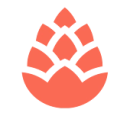Going to the doctor doesn't just start and stop when you enter and exit — it's a messy process, filled with multiple lines of communication, arduous paperwork and confusing direction. With that in mind, Cedar has developed a patient payment platform to transform what is typically a tiresome administrative and financial experience.
The Cedar team is driven by their mission to transform healthcare. We met with three of their engineers to learn more about Cedar's company culture and how they are scaling for growth.



FOUNDED: 2016
EMPLOYEES: 77; 69 locally
WHERE THEY DO IT: NYC
WHAT THEY DO: Cedar is a patient payment and engagement platform that elevates the total patient experience beyond clinical care. Their technology improves the overall experience of patient billing and engagement, enabling healthcare providers to thrive in a rapidly changing environment while helping patients understand the cost of their care.
PERKS TO MENTION: Cedar emphasizes career pathing: whether you want to be a leader or a contributor, there’s a career path for you, with resources and initiatives to move you forward.


Hassan Sultan, Head of Engineering
Hassan heads up Cedar's engineering team. His focus is defining the company's technical architecture, which is critical to Cedar's mission to reshape healthcare and radically improve the patient experience.
DIVERSIFIED DIVERSIONS: Never afraid to try something new, Hassan dabbles in a variety of hobbies and pastimes, from kitesurfing to poker to poetry.
How do you keep your team members across all departments motivated and empowered to continue building the company and innovating for growth?
We try to figure out what people want for themselves and align that with what the company needs. We hire great, ambitious people and if we can help them grow, I trust that they will gravitate towards high impact problems. If we solve enough of those, we all win.
What led to you healthcare, and how does that passion and experience continue to motivate your growth with Cedar?
I have dealt with major health crises in my family — my father fell ill with cancer and my brother had advanced liver cancer and heart disease. Thankfully, both my father and brother are alive today because they received outstanding healthcare. However, their experience as patients and my experience as their medical advocate was fraught with frustrating administrative and clinical problems that I am passionate about solving. I appreciate that Cedar is dedicated to helping patients have a much better financial and administrative experience to mitigate the pain and frustration of these types of situations.
We hire great, ambitious people and if we can help them grow, I trust that they will gravitate towards high impact problems. If we solve enough of those, we all win.”
What’s the biggest technical challenge you’ve faced and how did you overcome it?
Preparing for more than a hundred million patients and over $1 billion in billings. We have to build a secure, scalable data pipeline from a myriad of complex data sources. We have to continuously synchronize patient data from multiple clients’ EHRs (Electronic Health Record systems), accounting for varying EHR vendors and business processes. On top of that, our data are two of the most valuable and personal types of data that a person has — healthcare and financial — so security, at our growing scale, is of utmost concern.


Debbie Milburn, Engineering Lead
Debbie serves as tech lead for the engineering team and product owner for Cedar’s communications and machine learning products.
COMPOSITION AND COMPOSURE: Since age 6, Debbie has been playing the violin, a skill that has taught her new ways of communicating and the potential for music to share a story.
You lead a “Coding 101” bootcamp for non-technical employees at Cedar. How does that empower those team members to participate in technical projects, or otherwise collaborate with the technical team?
One of my favorite parts of the "Coding 101" course is asking people to come up with an algorithm for a human versus a computer for the same activity — for example, "What algorithm would you need to give a computer versus a human to make a box of pasta?" I think it's helpful for anyone working in tech to get a sense of what computers are good at and where they fall short of human abilities. That question helps people get a better sense of what our capabilities are.
I also love getting to share things that are important to me outside of work with my workers. During retreats, I've led sessions like 'Coding 101,' yoga and meditations.”
What’s your tech stack comprised of? Why did you choose it?
Our backend is written in Python and Django. We have two different front ends, one in Django templates and Javascript — the other is in React. Python is a great backend choice for a variety of reasons. It's easy to learn and to read. It's also the language of choice for data scientists. Our front ends are tailored to the needs of the applications. For example, we use React for the front end that requires a lot of reactivity, such as multiple simultaneous live chat windows.
Over time, strong cultures tend to develop beloved traditions. Tell us about a team or company tradition, in detail. Why is it meaningful to you? How did you participate in it?
Every six months, we all go on a retreat together for a few days. It's a really special time where we go somewhere beautiful and get to know each other better. This is an opportunity to talk to people that you don't get to speak to every day, and it definitely builds a lot of trust throughout the organization. I also love getting to share things that are important to me outside of work with my workers. During retreats, I've led sessions like "Coding 101," yoga and meditations.


Juan Gonzalez, Software Engineer — Platform Team
Juan is a software engineer on the Platform team and shares their love for “moving fast and breaking things.” His team’s job is to scale their product infrastructure for rapid growth, improving product performance and reinforcing against security vulnerabilities.
BETWEEN THE LINES: Juan appreciates literature, particularly science fiction, for the way it presents out-of-the-box thinking — a characteristic he believes is necessary for unique engineering solutions.
Talk to us about the problems you solve when you come into work, and the technologies you're using or building to accomplish those goals.
My question for myself at Cedar is "where is the bottleneck,” i.e. what is slowing down our system, what is preventing us from growing, and what is preventing innovation. Sometimes the bottleneck involves architecture: a slow database, an underperforming server or an unreliable service. Sometimes the bottleneck involves our code: a slow process, a memory-intensive process or an inefficient algorithm. Sometimes the bottleneck is a theoretical way our system could fail: our site goes down and a potential security vulnerability is discovered. My team's goal is to detect and eliminate these bottlenecks.
We don’t like red tape and think that adding more of it is a recipe for disaster — so, we also work on finding ways to improve the robustness of our system, in general, to allow us to say 'yes' more often to proposals.”
Does this team have a say on the products, features and design developed by your company?
My team is often consulted when new features are proposed because we're often the first team to act when our system fails. This means we can have strong opinions about new features that compromise our system's reliability. This also means that sometimes we reject initial implementations of features. However, if you ask anyone on my team whether or not they enjoy preventing a new feature from being released, they would definitely respond with, "no." We don’t like red tape and think that adding more of it is a recipe for disaster — so, we also work on finding ways to improve the robustness of our system, in general, to allow us to say "yes" more often to proposals.
What's your favorite part or element of your team's/company's culture?
My favorite aspect of Cedar is its commitment to “no mediocrity.” So much of the healthcare technology industry feels mediocre: long wait times, confusing billing, confusing explanations, poor design and tons of paperwork. It’s refreshing to know that Cedar does not want to contribute to this bad system. We know that when we create something, it is intuitive and works well. That’s not something that patients are used to. We know that the best way to achieve our vision is to put egos aside and work together. I believe that this aspect of our culture leads to a generally happier and productive team.





